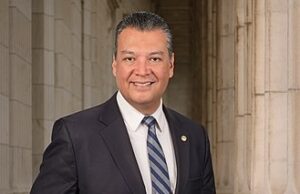Money-Making Scam Owner Will Pay Almost $1 Million and Sell House and Personal Property to Settle Prior FTC Judgment
WASHINGTON, D.C. – March 18, 2011 – (RealEstateRama) — The operator of a defunct money-making scam has agreed to settle a federal court judgment the Federal Trade Commission obtained against him in 2007 for falsely claiming his “wealth building” program would teach consumers how to make substantial income in a short time by buying and selling privately held mortgages. Under the settlement, John Stefanchik will pay the FTC $900,000 plus the proceeds from the sale of his house and substantially all of his personal property.
As part of the settlement, the FTC will suspend a $17.8 million judgment against Stefanchik imposed by a federal court in 2007 and upheld by the Ninth Circuit Court of Appeals in 2009. The judgment resulted from a lawsuit the agency filed against him and his company, Beringer Corporation, in 2004. Seeking to collect the judgment, the FTC filed a complaint in bankruptcy court in December 2009, charging Stefanchik, his wife, Heidi Fogg, and her company, Warwick Properties LLC, with trying to shelter assets from the judgment.
Under the settlement, the judgment will be suspended when Stefanchik pays the FTC $900,000 and the funds from the sale of personal property and proceeds from the sale of his house in bankruptcy. The original $17.8 million judgment will be imposed immediately if he is found to have misrepresented his or his wife’s financial condition. The judgment’s ban on false and misleading conduct by Stefanchik and Beringer will remain in full force and effect. The settlement also resolves the FTC’s complaint in the bankruptcy proceeding.
The Commission vote to authorize staff to file a modification of the final judgment was 5-0. The modification order was entered by the U.S. District Court for the Western District of Washington at Seattle. In January 2011, the bankruptcy court entered orders resolving the FTC’s claims in the bankruptcy case.
Click these links for information about investment, franchise and business opportunity, and work-at-home schemes.
NOTE: The modification of a final judgment requires approval by the court and has the force of law when signed by the judge.
The Federal Trade Commission works for consumers to prevent fraudulent, deceptive, and unfair business practices and to provide information to help spot, stop, and avoid them. To file a complaint in English or Spanish, visit the FTC’s online Complaint Assistant or call 1-877-FTC-HELP (1-877-382-4357). The FTC enters complaints into Consumer Sentinel, a secure, online database available to more than 1,800 civil and criminal law enforcement agencies in the U.S. and abroad. The FTC’s Web site provides free information on a variety of consumer topics.
- MEDIA CONTACT:
- Frank Dorman,
Office of Public Affairs
202-326-2674
- STAFF CONTACT:
- Nadine Samter,
FTC’s Northwest Region
202-220-4479










